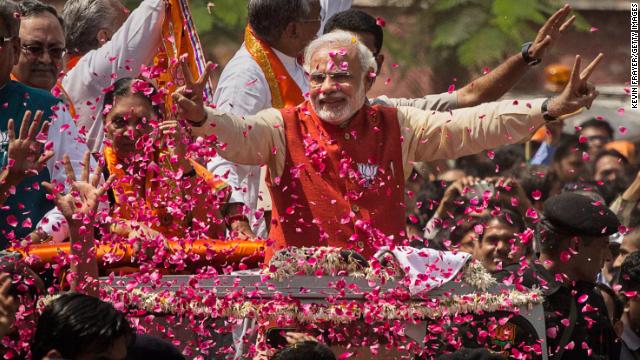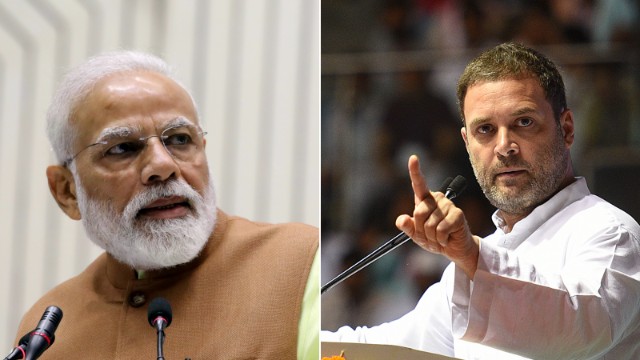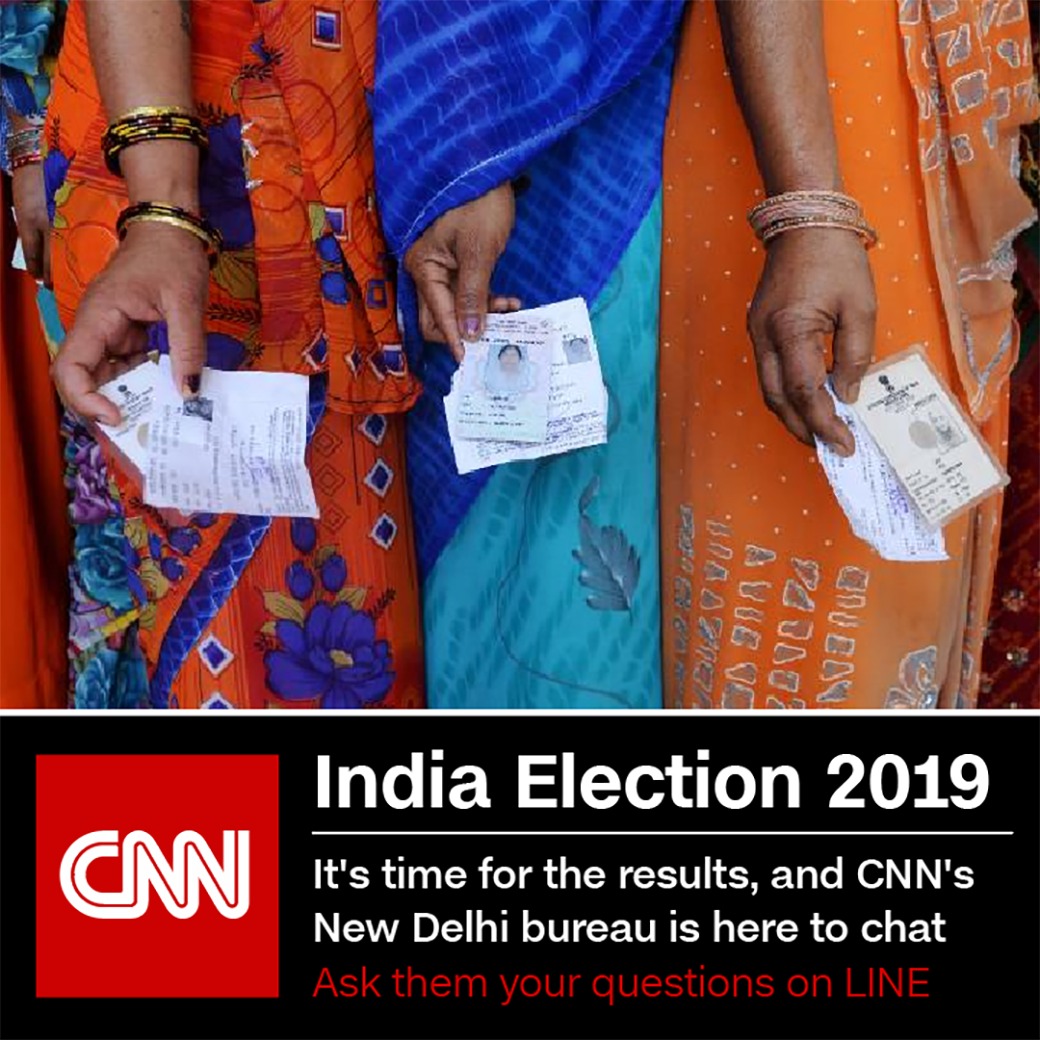CNN's New Delhi Bureau Chief Nikhil Kumar answered your questions about India's election on LINE. Here are the highlights from that chat.
Q: What are the major issues in the election?
Heading into the election, there was much discussion about the economy, about whether Modi had delivered on the economic promises he made when he first won national office in 2014. Many experts say, for example, that the joblessness plaguing India’s young people -- something he’d promised to fix -- has worsened. Roughly 12 million young Indians enter the workforce each year, but they too often struggle to find work.
There are also signs of growing distress in India’s farm sector. But these and other issues were overshadowed by nationalism and national security -- Modi presented himself as a protector of the nation, not the would be reformer we saw in 2014. And it appears to have worked. It’s something that has worried many liberals and Indians who belong to religious minorities -- Modi belongs to the Hindu right wing movement, many members of which see India as an exclusively Hindu nation.
Q: Why is India's election system so complex, and have there been any problems so far?
It's a long and complicated process, yes -- but then look at the numbers involved: some 900 million Indians were eligible to vote. Making sure they could do so safely and securely meant installing around a million polling stations. Around ten million officials were involved in overseeing the exercise. There were thousands of candidates.
We’re still waiting for final numbers but early reports suggest around 600 million actually voted -- a massive number, which helps explain the complex electoral process.
Q: How does this matter to the outside world?
It matters a lot. India has a massive population, around 1.3 billion, many of whom are very young: most Indians are under 25. They live in what is an increasingly important economic power. Who governs them, how they are governed, matters immensely to the wider world.
Q: How will these results affect the Muslim minority in India?
Many Indian liberals and minorities have been very worried about the rise of Modi and his Hindu nationalist BJP. Here’s a good piece from this morning, by my colleague Swati Gupta, that explains their fears well: they’ve often faced violence as Hindu nationalists have gained the upper hand politically. Read more on that here.
Q: How will results affect India's diplomatic relations?
If current early trends hold and the BJP wins, then we should see a continuity: We’ll have the same Prime Minister, and he’s largely been in charge of foreign policy here. Look for more efforts to try to build India’s profile in the region -- there’s a debate about just how much Modi has succeeded here, but it’s something that he’s often talked about.
Q: What would be Modi's main agenda if he were elected?
In 2014, he portrayed himself as an economic reformer. But this time, with big questions about whether he lived up to that image in his first term, he’s campaigned more as a popular nationalist. Hindu nationalism was a big theme this time. So what does that mean? Many here worry that it means the hardline Hindu right wing fringe will be emboldened -- and that we could see a further erosion of India’s secular foundations.


